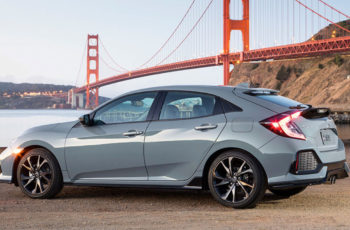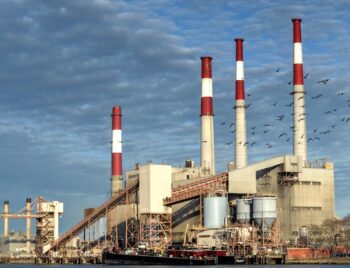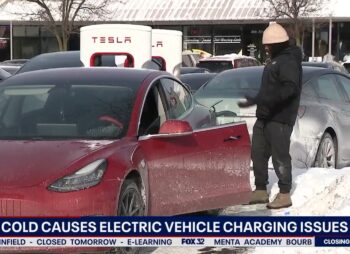
The Environmental Protection Agency sent a letter to California air regulators earlier this month asking the state to outline a legal justification for altering its vehicle greenhouse gas limits, pursuant to a deal the state struck with four automakers, EPA Administrator Andrew Wheeler said during remarks Thursday at agency headquarters.
Those automakers — Ford, Honda, Volkswagen, and BMW — went around the Trump administration in July, agreeing with California regulators to follow standards weaker than the Obama-era rules but much more stringent than what the Trump administration proposed.
That deal infuriated the White House, and the letter from the EPA appears to be the latest in a series of threats from the Trump administration against the Golden State and the four automakers teaming up with it.
Earlier this month, in retaliation, the Justice Department launched an antitrust investigation into those four automakers to explore whether they violated federal competition laws by teaming up with California.
Wheeler’s remarks came during an event at which he and Transportation Secretary Elaine Chao formally announced the agencies’ move to eliminate California’s authority to set its own greenhouse gas limits for passenger cars stricter than federal limits.
California has had the special ability under the Clean Air Act to set its own tailpipe pollution limits since the law was written in the 1970s, so long as the EPA grants the state a waiver.
But if it wants to change its state-level rules, to accommodate the deal made with automakers, California needs to apply for a new waiver from the agency, EPA general counsel Matt Leopold told reporters Thursday.
“California knows this full well,” Leopold said. “We haven’t been contacted by California to seek any waiver, so we question the legality of that.”
It’s unlikely the EPA would grant California another waiver to alter its greenhouse gas limits to match the deal the state struck with the four automakers.
Leopold said he wouldn’t speculate on whether the agency could bring an enforcement action against California.
“But I will say that the law is clear that absent a waiver from the EPA, they can’t adopt or attempt to enforce — that’s the language of the statute — standards,” he added.
As the EPA explores whether California’s actions are unlawful, Democrats and environmentalists are urging more automakers to sign onto the deal.
Sen. Tom Carper of Delaware, the top Democrat on the Senate environment committee, told reporters Wednesday he and his staff called nearly a dozen automakers individually to urge them to join California.
“You don’t have to stay stuck in neutral,” Carper said he told automakers. “It’s time for all companies to really take a stand.”
The action from the two agencies to withdraw California’s existing waiver follows a tweet Wednesday from President Trump announcing the administration would eliminate California’s vehicle greenhouse gas authority.
Trump tweeted the move while traveling in the state, timing he told reporters late Wednesday was “really a coincidence.”
Without a waiver, the Golden State won’t be able to set or enforce stricter greenhouse gas standards for cars in the future, which could be a critical blow to California’s ability to meet its long-term climate goals.
“The one national program will ensure there is one, and only one, set of national fuel economy standards as Congress mandated and intended,” Chao said in remarks Thursday at EPA headquarters in Washington.
“No state has the authority to opt-out of the nation’s rule, and no state has the right to impose its policies on everybody else and our whole country,” Chao added.
California regulators, though, have already promised to challenge the administration’s move in court.
Read rest at Washington Examiner

















The new regulations by California are clearly illegal without another waiver which they will not get. However, this doesn’t matter at all to liberals. If it is for one of their “worthy causes” then it is justified. This will probably work its way up the Supreme Court where California will lose.
Agreeing to more stringent fuel economy measures are not in the best interest of auto makers. In order to give the pubic the larger vehicles that are in demand, many small vehicles need to be produced to off set the fuel economy average. This process has drive the cost of the larger vehicles up and would do so even more under California emission requirements. Auto makers that don’t go along with the excessive requirement will have an advantage
Can someone please explain to me what the big deal is here. Federal standards cover things like maximum pollution emission levels and minimum fuel economy levels. If 4 automakers (or any number) choose to build cars that are much cleaner or much more fuel efficient than the minimum, so what. They still meet the national standards.
A California deal like the shit show with Volkswagen .
Fleet sales numbers for tiny box cars to average numbers down
and subsidies from the democratic clown show that will run California into bankruptcy .
How much did California pee away on a bullet train blank ?
California the land of virtual signalers where honest politicians are as
rare as grizzle bear sightings that last occurred in 1911 yet is still on their flag .
At least color the bear red or pink to represent the true nature of California politicians .